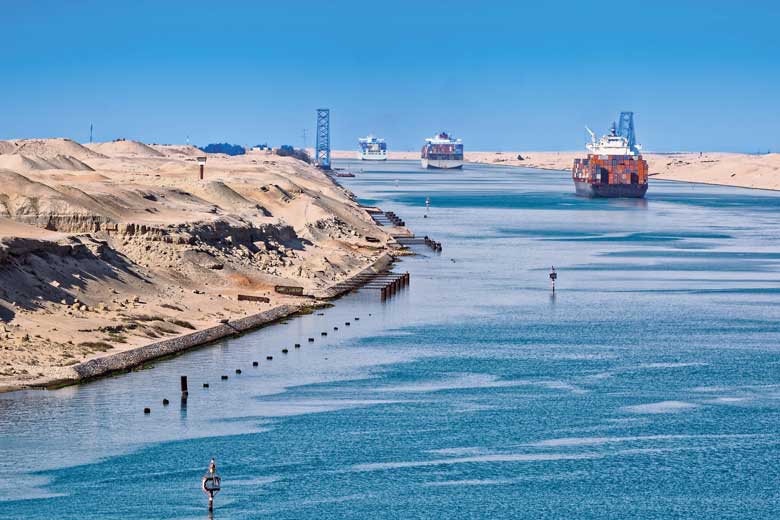The Suez Canal Authority reported that the Ever AIM, a giant container ship sister of the one who blocked the Suez Canal early this year, successfully made it through the canal as part of a south-north convoy. Retailers in the continent of Europe heaved a collective sigh of relief.
The Suez Canal and the Hormuz Strait are two bottlenecks along trade routes that are essential for the continent of Europe and, therefore, for the United Kingdom. Asda and other very large retailers may have followed Amazon’s lead and chartered ships, but if the ships get stuck in Suez, the goods may not make it in time for Christmas. If the tension between Iran and the West escalates, the Hormuz Straits can become very dangerous. It is a relatively narrow passage, way within range of Iran’s assault capabilities. If insurance companies perceive that the risk for oil tankers sailing through the Straits of Hormuz is too high, they increase the insurance premium, which may increase the price of oil. Higher oil prices lead to higher logistic costs and higher retail prices. Retail prices are also affected by an increased cost of containers and port congestions. That is why giant container ships play a role in contemporary logistics; they replace several ships.
The average British consumer may not even be able to place Suez and Hormuz on the map, but they are the key to understanding why the Middle East plays an important part in British foreign politics. It is not just trading. According to government statistics, in 2017, countries in the Middle East bought 58% of British weaponry, Wealthy countries buy British luxury goods. What happens around the Suez Canal and the Hormuz Straits affects everybody.
Many people trying to cross the channel on dinghies are refugees from the Middle East. Iraq and Afghanistan are often used as examples of how not to intervene. Beyond complicated politics and local and international conflicts that have been going on for a long time, the real reason why the Middle East matters can be summarised by Suez and Hormuz. Suez is crucial for trade routes from Asia. The only alternative is the ‘rail silk route’ promoted by China, but the volume of freight that travels between Asia and Europe by rail pales compared to what sails through the Suez Canal. The traffic of oil tankers across the Straits of Hormuz is huge, and, again, some pipelines bring Gulf oil to the Mediterranean or the Saudi coast of the Red Sea. Still, the volume of oil transferred through those pipelines pales compared to the oil transported by tankers across the Straits. Not to mention that those tankers sail across the Suez canal as well.
Therefore, forget international politics and export trade. The real reason the Middle East plays such a prominent role in British foreign policy can be found in those two bottlenecks: Suez and Hormuz.




